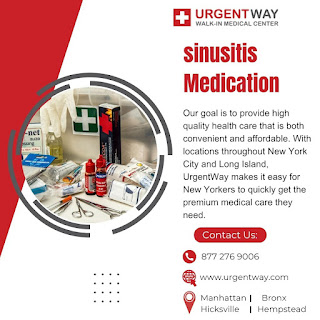10 Effective Ways to Find Lower Back Pain Relief:
10 Effective Ways to Find Lower Back Pain Relief:
Finding relief from lower back pain is essential for improving
overall quality of life. Doctors recommend several effective strategies to
manage and alleviate lower back pain. Here are ten of them:
1. Maintain Good Posture: Pay attention
to your posture while standing, sitting, and lifting. Poor posture can strain
your lower back, leading to pain over time. Practice proper alignment to reduce
stress on your back.
2. Exercise Regularly: Engage in
low-impact exercises that strengthen your core and back muscles, such as
swimming, walking, or yoga. Strong muscles support your spine and can alleviate
pain.
3. Stretch Daily: Perform gentle
stretches that target your lower back to improve flexibility and reduce tension.
Consult a physical therapist for personalized exercises.
Use Ergonomic Furniture: Invest in a
supportive chair and an ergonomic workstation that promotes proper posture and
reduces strain on your lower back.
5. Lift Objects Correctly: When lifting
heavy objects, use your legs instead of your back to minimize stress on your
spine. Keep the object close to your body and avoid twisting motions.
6. Apply Heat and Cold Therapy: Applying a
heating pad or warm compress can help relax tense muscles, while an ice pack
can reduce inflammation. Alternate between the two for the best results.
7. Maintain a Healthy Weight: Excess weight
can put additional pressure on your lower back. Aim for a balanced diet and
regular exercise to achieve and maintain a healthy weight.
8. Improve Sleep Habits: Invest in a
supportive mattress and ensure you maintain a proper sleeping position that
keeps your spine aligned.
9. Avoid Prolonged Sitting: If you have a
desk job or spend long hours sitting, take regular breaks to stretch and walk around.
Consider using a standing desk or an adjustable workstation.
10 Seek Professional Help: If your lower
back pain persists or worsens, consult a healthcare professional, such as a
physical therapist, chiropractor, or orthopedic doctor. They can offer personalized
guidance and treatment options.
Remember, every individual's condition is unique, so it's essential
to tailor these strategies to your specific needs. Always consult a healthcare
professional before starting any new exercise regimen or treatment plan for
your lower back pain.
Back Pain, Emergency or Urgent Symptoms.
While most cases of back pain are not considered emergencies, there
are certain symptoms that warrant immediate medical attention. If you or
someone else experiences any of the following symptoms along with back pain, it
is essential to seek emergency medical care:
Loss of Bladder or Bowel Control: If you are unable to control your
bladder or bowels or experience sudden urinary or fecal incontinence, it could
indicate a severe problem with the spine that requires immediate evaluation.
Progressive Weakness or Numbness: If you notice progressive
weakness, numbness, or tingling that affects your legs or causes difficulty
walking, it may indicate nerve compression or damage that requires urgent
attention.
Severe Trauma: If your back pain is the result of a serious fall,
accident, or any traumatic injury, it's crucial to seek immediate medical
attention to rule out fractures or internal injuries.
Fever with Back Pain: The combination of back pain and a fever
could be a sign of an infection, such as a spinal infection or a kidney
infection, which requires prompt evaluation and treatment.
Unexplained Weight Loss: If you are experiencing unexplained weight
loss along with back pain, it could be a sign of an underlying medical
condition that needs immediate attention.
Loss of Sensation or Function in Lower Body: Any sudden loss of
sensation, strength, or function in your lower body, such as an inability to
move your legs, warrants immediate medical evaluation.
Recent Surgery or Medical Procedure: If you've had recent spinal
surgery or any medical procedure involving the back and you experience new or
worsening back pain, contact your healthcare provider immediately.
Severe, Unrelenting Pain: If your back pain is extremely severe and
does not respond to rest or over-the-counter pain medications, it's best to
seek immediate medical evaluation.
In case of any doubt or concern about your back pain, it is always
better to err on the side of caution and seek medical advice. If you are unsure
whether your symptoms require emergency care, you can call your healthcare
provider or visit the nearest emergency room for guidance. Prompt evaluation
and treatment can prevent potential complications and ensure the best possible
outcome.
Treating lower back pain typically involves a combination of
self-care measures, lifestyle adjustments, and, in some cases, medical
interventions. The specific treatment plan will depend on the cause, severity,
and individual needs of the person experiencing the pain. Here are some common
approaches to treating lower back pain:
Rest: Give your back some time to heal by avoiding activities that
exacerbate the pain. However, avoid prolonged bed rest, as it may weaken the
muscles and delay recovery.
Hot and Cold Therapy: Applying heat or ice to the affected area can help alleviate pain
and reduce inflammation. Use ice during the first 48 hours after the pain
starts, and then switch to heat.
Over-the-Counter Pain Medications: Nonsteroidal
anti-inflammatory drugs (NSAIDs), such as ibuprofen or naproxen, can help
reduce pain and inflammation.
Topical Pain Relievers: Creams, gels, or patches containing capsaicin or menthol can
provide temporary relief when applied to the painful area.
Gentle Exercises: Once the acute pain improves, perform gentle exercises and
stretches to strengthen your core and back muscles.




Comments
Post a Comment